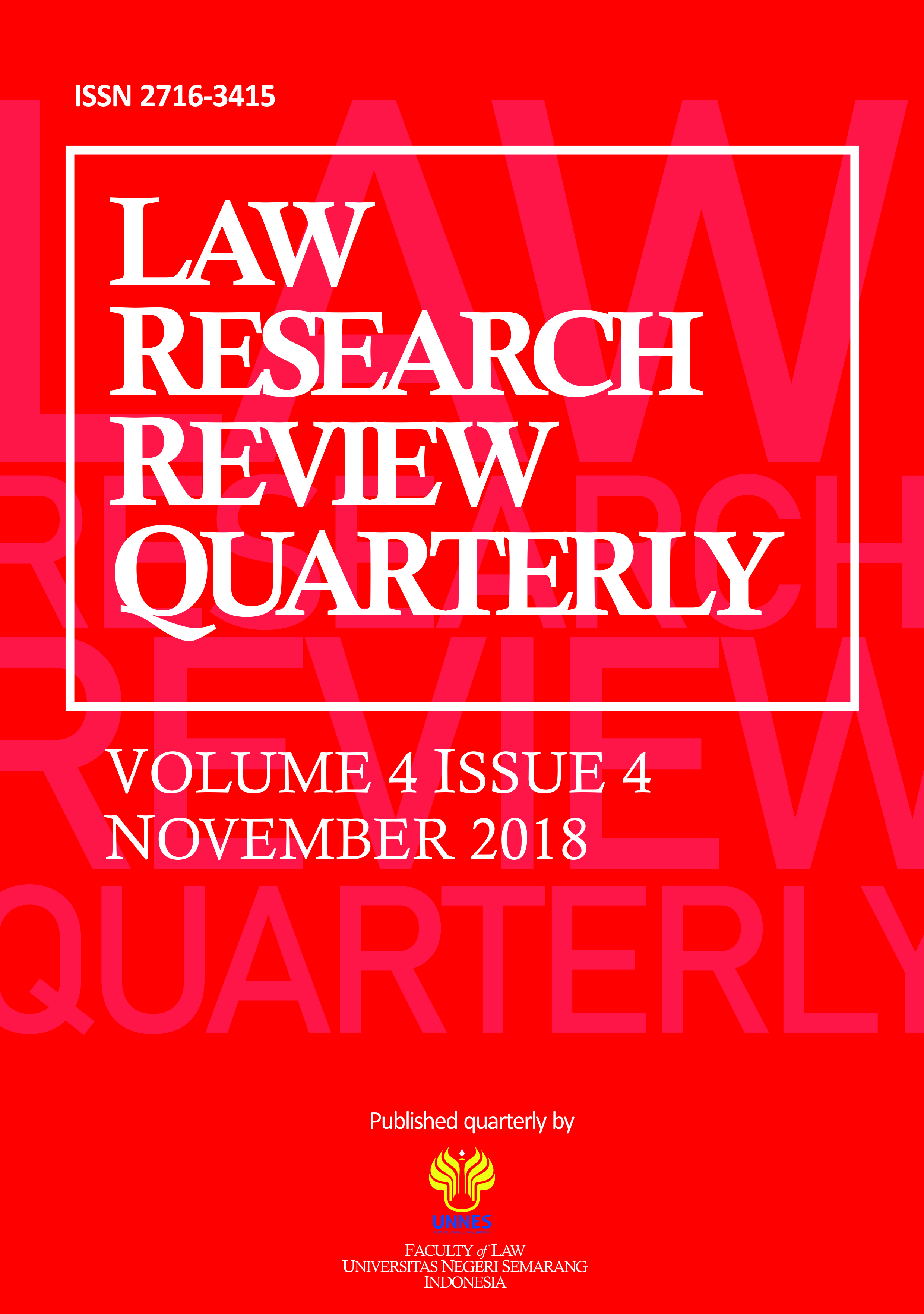The Function of Mass Media in the Democracy State Perspective related to the Election Organization
Main Article Content
Abstract
In the implementation of democracy in Indonesia, the mass media is required to be more independent and neutral in providing information, especially regarding the conduct of elections. The mass media must be able to become social control in the socio-political life in society. In addition, the media must also be able to provide actual, factual, and balanced information to the public so that it can become a reference for the community in choosing leaders and can create elections that are in accordance with the principles of elections in democratic countries. The use of media plays an important role in the campaign process and modern political socialization. However, the mass media itself has shown a position of dilemma in supporting the implementation of democracy, even today the mass media is trying to position itself as a political actor. The position of the media caught in a conflict to maintain the ethics of journalistic interests or political interests is considered a problem. Because if the news delivered is not balanced, it could potentially harm democracy in Indonesia itself. In this case, actually the community did not get enlightenment about political issues, but rather provoked because of the imbalance of news received. This situation can be a threat in the upcoming 2019 general election, especially for the presidential election which is only followed by 2 candidate pairs. In this paper we will explain the function of mass media in a democratic perspective related to the holding elections in Indonesia.
Article Details
All writings published in this journal are personal views of the authors and do not represent the views of this journal and the author's affiliated institutions. Author(s) are retain the copyrights of the Article. However, before publishing, it is required to obtain written confirmation from Author(s) in order to ensure the originality (Author Statement of Originality). The statement is to be signed by at least one of the authors who have obtained the assent of the co-author(s) where applicable.This work licensed under a Creative Commons Attribution-ShareAlike 4.0 International (CC BY-SA 4.0)
References
1. CIPG (Critical for Innovation Policy & Governance), (2012), Tentang Media dan Demokrasi, Seri 4 rangkaian modul CREAME (Critical Research Methodology), CIPG.
2. McQuail, Denis, 2011, Teori Komunikasi Massa, Buku 1, Edisi 6, Penerjemah Putri Iva Izzati, Salemba Humanika: Jakarta
3. Subiakto, (2012), Pengertian Media Massa, Kencana Prenada Media Grup: Jakarta
4. Subiakto, Henry & Rachmah Ida, (2012), Komunikasi Politik, Media, & Demokrasi, Kencana Prenada Media Grup: Jakarta
5. Venus, Antar, (2009), Manajemen Kampanye, Simbiosa Rekatama Media: Bandung.
Jurnal
1. Ali Mustofa, (2013), “Peran Media Massa sebagai Sarana Iklan Politik Parpolâ€, Jurnal Interaksi, Vol. 2 No. 1
2. Aminah, Siti, (2006), “Politik Media, Demokrasi dan Media Politikâ€, Jurnal Masyarakat, Kebudayaan dan Politik, Vol. 19, No, 3
3. Masduki, (2004 ), “Jurnalisme Politik: Keberpihakan Media dalam Pemilu 2004â€, Jurnal Ilmu Sosial dan Ilmu Politik, Vol. 8 No. 1
4. Musfialdy, (2015), “Peran Media Massa Saat Pemilihan Umum: Mengawasi atau Diawasiâ€, Jurnal RISALAH, Vol. 26, No. 2
5. Slamet, Adiyana, (2016 ), “Media dan Masa Depan Demokrasi di Indonesiaâ€, Jurnal Ilmu Politik dan Komunikasi, Volume 4 No. 1
6. Solihat, Manap, (2015), “Diversifikasi Media Massa dan Demokrasi Di Indonesia: Penguatan Peran Media Massa serta Masyarakat dalam Mewujudkan Demokrasiâ€, Jurnal Ilmu Politik dan Komunikasi, Volume V No. 2
Makalah Seminar / Lokakarya / Talkshow / Sarasehan
1. Aryanti, Aprilia Dwi, Happy Luh Desitiya Rusitawati, Netralitas Media Massa sebagai Implementasi Fungsi Edukasi Politik di Indonesia, Fakultas Hukum Universitas Sebelas Maret.
2. McCargo, Duncan, (1999) Media and Democratic Transitions in Southeast Asia, makalah untuk diskusi panel tentang ‘Democracy in the Third World: What Should be Done? ECPR Joint Sessions, Mannheim 26-31 March 1999.
3. Yasir, (2014), Kekuatan Media Massa Dalam Komunikasi Politik; Internet Sebagai Sebuah Alternatif, Jurusan Ilmu Komunikasi Fakultas Ilmu Sosial dan Ilmu Politik Universitas Riau, Seminar Besar Nasional Komunikasi.
